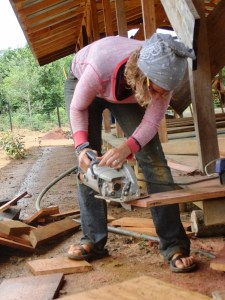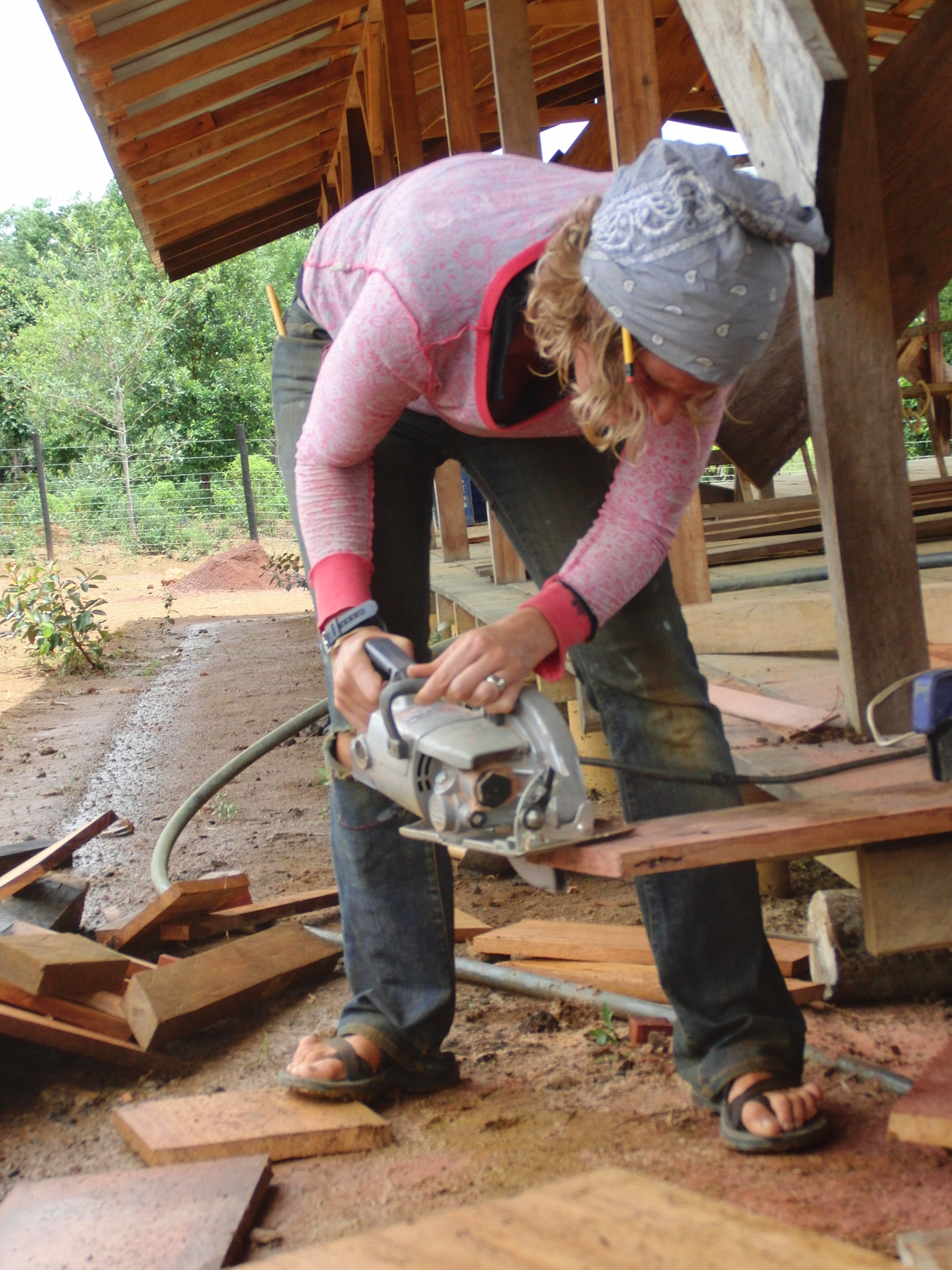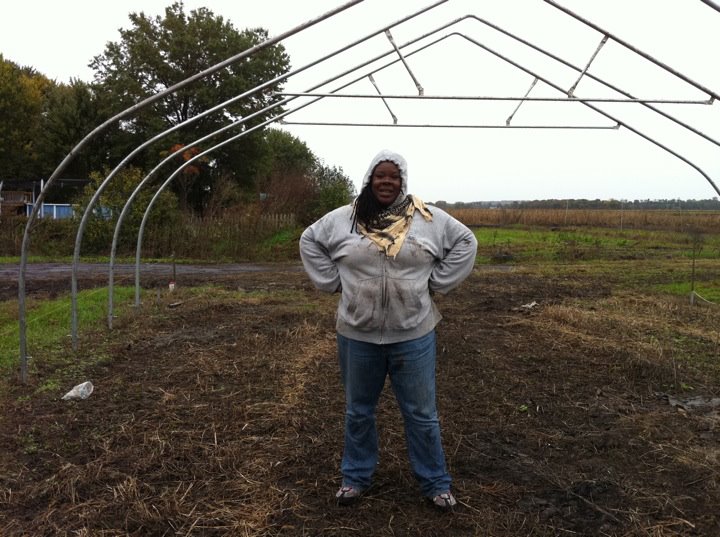Grist is proud to present the Change Gang — profiles of people who are leading change on the ground toward a more sustainable society and a greener planet. Some we’ve written about before; some are new to our pages. Some you’ll have heard of; most you probably won’t. Know someone we should add to the Change Gang? Tell us why.
 As a member of a crew of carpenters working for wealthy residents on the upper East Side of Manhattan in the late 1990s, Betsy MacLean got lessons in class consciousness and racial awareness from two directions at once. She had the least skills or experience of anyone in her crew, but as the only white person on a mostly black and Latino team she discovered that clients would frequently address her as if she were the boss. And then there was her real boss: a former labor organizer who had spent the 1980s making trips to Nicaragua in solidarity with the Sandinistas.
As a member of a crew of carpenters working for wealthy residents on the upper East Side of Manhattan in the late 1990s, Betsy MacLean got lessons in class consciousness and racial awareness from two directions at once. She had the least skills or experience of anyone in her crew, but as the only white person on a mostly black and Latino team she discovered that clients would frequently address her as if she were the boss. And then there was her real boss: a former labor organizer who had spent the 1980s making trips to Nicaragua in solidarity with the Sandinistas.
“He gave me my first book on Che,” says MacLean with a sharp laugh, as she explains how a one-time philosophy major from Ohio ended up devoting her life to improving the welfare of the mostly low-income, minority residents of the Brooklyn neighborhood known as East New York. “His whole thing was we do all of this work in the city for rich people, and it’s gonna pay for us to go down to Cuba and work on the reconstruction of Old Havana. That was the dream.”
MacLean followed that dream, and soon found herself working in the “super-marginalized” outskirts of Havana with “micro-brigades” of all-women construction crews. Soon she was organizing her own groups of Americans for regular trips to Cuba to help build urban agriculture projects. After completing a dual masters in international affairs and urban planning at Columbia, she decided to employ some of the lessons she had learned down south in East New York.
Today, as the community development director for the Cypress Hills Local Development Corporation, MacLean has helped organize the construction of new schools, green affordable housing, and, soon, a collectively operated chicken farm. And she is uniquely positioned to explore a sometimes touchy subject — the intersection of environmental awareness and class.
Being green, after all, can sometimes be seen as an upper-class affectation. The rich carefully sort their cans and bottles for recycling, hoping to lower their carbon footprint, while the poor poach those bottles from the curb to collect the cash deposit.
But MacLean says it really hasn’t been that difficult in East New York to convince residents that going green makes sense.
“It’s not a hard sell, to say, do you want to save money on your energy bills? Everyone gets the energy efficiency piece — they recognize that right away: ‘Let’s do it, let’s do it now, let’s do it yesterday.’ I think they also get the piece that connects to their health: how leaky roofs lead to mold and mildew in the basement which then leads to poor indoor air quality which then leads to higher than average asthma rates in our neighborhood. People get that where they are living has a direct impact on both their wallets and their health. I think the harder piece is then making the connection to the carbon footprint of our neighborhood.”
But there’s no problem whatsoever making the case for fresh, organic, locally produced food, or getting community support to help build an organic chicken farm in the city. The typical East New York resident is a bit more familiar with farm animals than your average Williamsburg hipster.
“Our community is largely recent immigrants from Latin America,” says MacLean. “And what we find is a lot of folks from the neighborhood have agricultural experience in their recent history. They are accustomed to eating fresh food, and not accustomed to the weird American way of eating. And so people are just desperate for healthy affordable food for their families. We found that when we built our school 10 years ago, from the very beginning parents were insisting on a cafeteria and kitchen that could provide healthy delicious culturally appropriate food that was fresh and not microwaved.”
“And all that goes back to the public health concept: community development as public health. If people are eating better, are warmer in their homes, if there’s less contaminants in their homes, then they are healthier and they are spending less money at the doctor or on medicine. It’s another way to reduce unnecessary costs and make people happier.”
Sustainability, says MacLean, has to start with real improvements in people’s immediate lives.
“If it is just about saving the polar bears, you miss the boat. I mean, I love the polar bears as much as anybody, but it just doesn’t resonate in East New York. It is not nearly as relevant to folks as ‘Let’s save you some money, and make sure that you and your kids are healthy.'”



